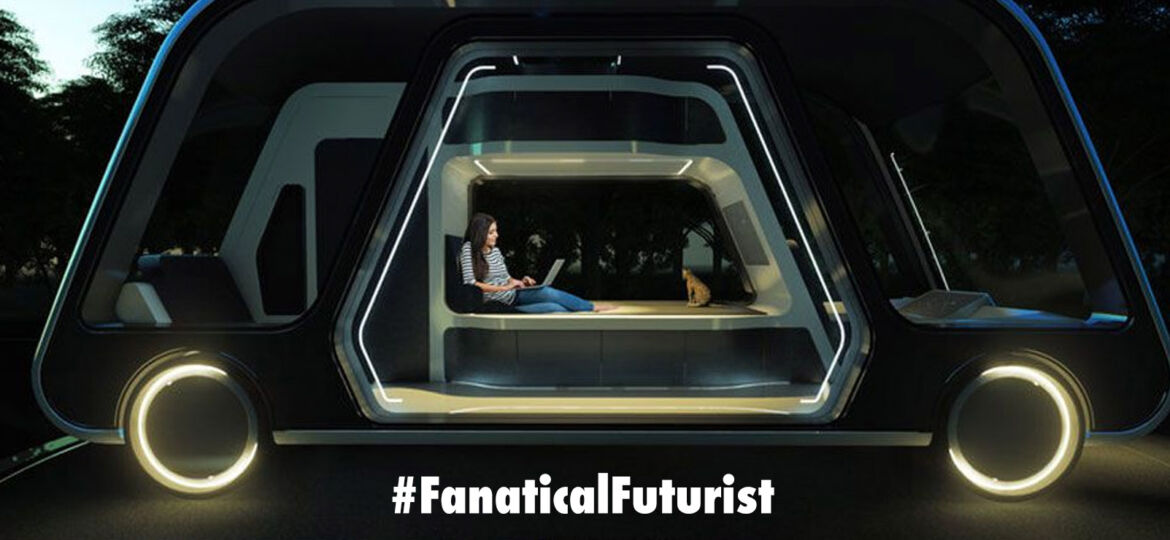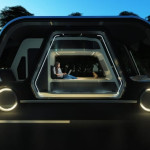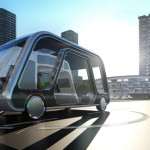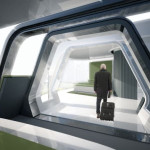
WHY THIS MATTERS IN BRIEF
The rise of fully autonomous vehicles are allowing innovators to come up with new concepts and travel ideas.
Question: What do you get if you cross a hotel room with a self-driving vehicle? Answer: The Autonomous Travel Suite (ATS). A hotel room on wheels, the ATS is the brainchild of Canada based Steve Lee of Aprilli Design Studio and he believes it could revolutionise the way we travel.
Lee says that his hybrid concept, which won this year’s Radical Innovation Award, a design competition for the hospitality industry, combines his experience in hotel design and architecture with his passion for futuristic technology.
While car designers have focused on developing advanced versions of conventional vehicles, “as an architect, I see self-driving vehicles as more being more like a mobile room,” says Lee.
Designed to carry travellers on journeys of between six and 10 hours, the ATS is equipped with many of the elements found in a traditional hotel room – a sleeping space, with a memory foam mattress, a work space, a tiny kitchen, a toilet, a sitting shower and an “entertainment zone” for watching movies and gaming. It’s also encased by panoramic smart glass windows that dim at the touch of a button and offered in a range of sizes, to accommodate solo travellers, couples or families with all its facilities controlled by an app.
Travelers will “select the start and end points of their journeys and can add stopping off points such as gyms and restaurants,” says Lee. “The system will work out the best route.”
In Lee’s vision, the vehicles will be operated by a chain of “Autonomous Hotels” that provide critical on-the-road services including vehicle maintenance, water provision and waste removal.
Travelers can choose to dock their ATS into a static “parent suite” to form an integrated unit offering overnight stays and use of shared amenities such as swimming pools, gyms, restaurants and meeting rooms.
Lee is currently talking to automakers about how best to power the ATS. If the suites are electric, they will be supported by service vehicles that replace their batteries when the juice is running low. Hydrogen fuelled vehicles are another option. Although the technology is less developed, it offers the potential for a longer driving range between pit stops.
So when can travellers hope to try out the mobile hotel experience? It is predicted that in the US, carmakers will be capable of mass producing fully self-driving early in 2019 and more so by 2021, with the hope that the built infrastructure needed to support them, such as supercharger networks and so on, will catch up faster than they are today.
Lee says that his creation is likely to first hit the roads in East and West coast cities in the US, where the infrastructure will be completed soonest, and points to a cluster of cities including New York, Pittsburgh, Boston and Washington DC which “all fall into the six to ten hour driving range,” as possible candidates for early adoption.
He believes that as a customised, comfortable and time efficient form of transport, the ATS will be well positioned to replace domestic air travel, or at least some of it, as well as helping eliminate the need to wait in line at check in, make multiple transport transfers and lug heavy suitcases around. However, just as Lee says the new ATS concept will compete with traditional hotel rooms and traditional airlines, it might not have it all its own way as more governments and companies announce investments in new modes of transport, from sky taxi’s that can hop between cities in minutes not hours, and new super-fast hyperloop trains that can ravel at speeds of between Mach 1 to Mach 3.






















[…] autonomous vehicles from automakers like Toyota’s E-Pallet and other automotive startups like self-driving hotel room company Aprilli and uni-modal transportation company Next, Zoox’s robo-taxi has a few standout […]